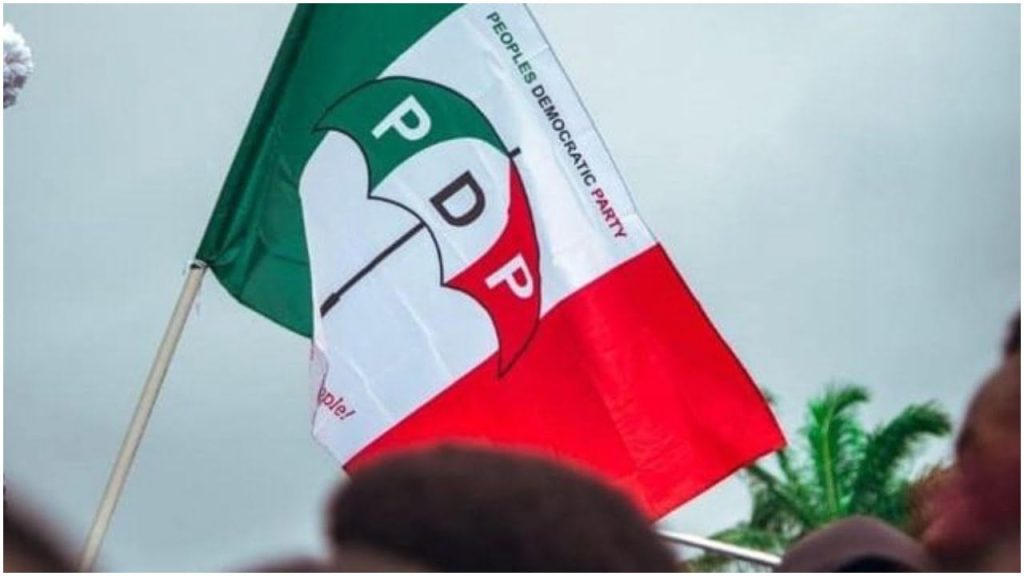Internal Dispute Erupts Within Bayelsa PDP Over Alleged Leadership Change
The political landscape in Bayelsa State has been stirred by a contentious internal dispute within the Peoples Democratic Party (PDP), sparked by reports of a leadership overhaul. The controversy centers around the alleged dissolution of the state’s Working Committee, led by Solomon Agwana, and the purported appointment of a caretaker committee aligned with Nyesom Wike, the Minister of the Federal Capital Territory. The Bayelsa PDP chapter vehemently denies these claims, characterizing them as misleading and fabricated, thereby setting the stage for a power struggle within the party.
At the heart of the conflict is the action taken by the South-South Zonal Working Committee of the PDP, headed by Dan Orbih. This committee announced the dissolution of both the Bayelsa and Edo state executives, citing grounds of gross misconduct, inadequate performance, and mismanagement of internal conflicts. The zonal committee further appointed George Turnah, a known associate of Minister Wike, to chair the newly formed caretaker committee. This move has fueled speculation about Wike’s influence and potential ambitions within the party, adding another layer of complexity to the already tense situation.
The Bayelsa PDP, however, has firmly rejected the legitimacy of these actions. Ebiye Ogoli, the state’s Publicity Secretary, argues that the zonal executive committee’s tenure expired on March 13, 2025, rendering their decisions null and void. He further points to the prior appointment of a caretaker committee by the National Working Committee (NWC) of the PDP, led by Chief Emmanuel Ogidi, to oversee party affairs until a South-South zonal congress can be convened. This existing caretaker committee, according to Ogoli, underscores the illegitimacy of the zonal committee’s actions and its attempt to install new leadership.
Ogoli’s statement emphasizes the lack of constitutional authority vested in the zonal executive committee to dissolve state-level committees. He asserts that such power resides solely with the national body of the party. Furthermore, he highlights the ongoing legal proceedings in a Bayelsa State High Court concerning the suspension of George Turnah, making his appointment to the caretaker committee premature and potentially invalid. This legal dimension further complicates the leadership dispute and adds another layer of uncertainty to the unfolding events.
The Bayelsa PDP’s response underscores a deeper power struggle within the party, potentially reflecting broader factionalism within the PDP at both state and national levels. The timing of this dispute, with the 2027 elections still some years away, suggests that internal positioning and maneuvering for influence are already underway. The involvement of prominent figures like Nyesom Wike adds a further layer of intrigue, raising questions about the extent of his influence and his potential role in shaping the party’s future direction.
The Bayelsa PDP has called on its members to disregard the alleged leadership changes and to remain focused on supporting the incumbent governor, Senator Douye Diri. This appeal for unity underscores the party’s concern about internal divisions and the potential impact on its political standing. The focus on supporting Governor Diri also suggests a strategic effort to consolidate support and project an image of stability amidst the ongoing internal turmoil. The party’s emphasis on the 2027 elections reveals its awareness of the long-term implications of this dispute and the need to resolve internal conflicts to maintain its political viability in the state. The coming weeks and months will be crucial in determining the outcome of this power struggle and its impact on the Bayelsa PDP’s future trajectory.
The dispute within the Bayelsa PDP highlights the complexities of internal party dynamics and the challenges of maintaining unity and cohesion in the face of competing interests and ambitions. The involvement of prominent figures like Nyesom Wike adds a national dimension to the conflict, raising questions about the broader implications for the PDP’s future. The party’s emphasis on supporting Governor Diri and focusing on the 2027 elections underscores its awareness of the need to resolve internal disputes to maintain its political relevance and competitiveness. The unfolding events in Bayelsa will undoubtedly be closely watched by political observers and analysts, as they offer a glimpse into the internal workings of one of Nigeria’s major political parties and the challenges it faces in navigating the complex political landscape.














